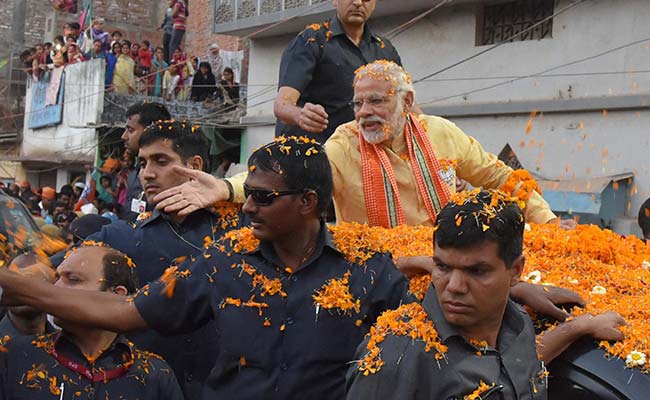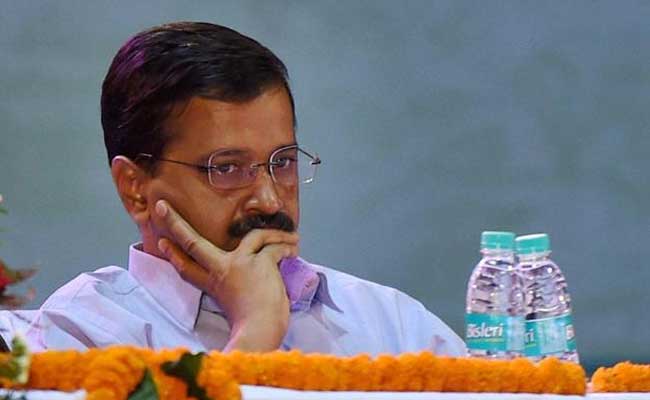In a sense, the paradigm of Indian politics which has existed since Mandalisation, has been changed, with Modi being able to directly reach out to the poor with his policies of demonetization, direct subsidies like free gas cylinders, and a promise of a better tomorrow. Demonetization, instead of becoming his Achilles' heel, has actually been received as a pro-poor policy. In a sense, he has stolen the mantle of party of the poor from the Congress and taken a large chunk of the Bahujan Samaj Party or BSP's support, reducing them to a mere rump. And being a better orator than Indira Gandhi, he has emerged as the people's icon for Garibi Hatao.
UP and Uttarakhand in a sense reflect what has happened in local elections across India, including the recent ones in Maharashtra and Odisha, where the BJP has out-performed. So these victories cannot be taken in isolation, but seem to show that the majority of voters believe that Modi has delivered, and will continue to do so on his pro-poor policies.
So while both the Samajwadi Party (SP) and BSP have seemingly managed to protect their core vote, the BJP has brought in more voters with UP having the highest turnout in a UP Vidhan Sabha elections of 60% in a growing electorate. Along with that, the BJP, through Modi, captured young voters who had been recently enfranchised and this, in turn, has diluted the percentage support for caste/religion-based parties. The new voter, who first surfaced in 2014, is looking for change and is seeing Modi deliver change. And while the change Modi has promised may not have positively impacted everyone, there is a positive impression that he is delivering for the poor.

PM Modi's super wave has ensured a majority government in the 403-seat state
And perhaps if you compare the goodies that Modi gave versus those by Akhilesh, you can see why Modi understood the politics of the poor better. While both target specific castes, Modi, by giving free gas cylinders under the Ujjwala Yogana to Below Poverty Line families, was providing a life-changing object. At one stroke, the women of the house were relieved from collecting wood, suffering from smoke and freed for more productive work. It was a gamechanger for the family. Akhilesh's laptops for students wasn't, it only benefited a small population, and brought minimal change. The same is true of the Rs 1,000-per-month unemployment allowance and Rs 500 senior citizens' pension. They did not change life for a whole household, and did not hold that promise for those not included.
The Congress in UP is probably finished. The victory in Punjab has provided them a fig leaf, and so may Manipur and Goa. But frankly, these results have little to do with the national leadership of the party or its programmes, policies or campaign styles. The victory in Punjab is very much a victory for Captain Amarinder Singh, and the fact that the Akalis all but provided that state on a platter. Captain grabbed that and pushed aside the challenge of the AAP, and that must be seen as his, and perhaps Sidhu's, success rather than a Congress victory. The Congress identified where AAP managed to do well in the East Malwa region in 2014 and recaptured this area. In Goa, the party has managed to exploit anti-incumbency to come back into the political game. It has been helped by the fact that AAP has failed.
And that is the other story of this election. AAP has failed. Failed to win or even emerge as the largest party in Punjab. With all the campaigning, the noise, the NRIs and the predictions, the AAP has underperformed badly, very badly. It has done worse that it did in 2014 general election, losing more than 20% of their support. And partly its failure rests on its inability to really decisively cut into the Akali vote.

AAP has done worse than it did in 2014 Lok Sabha polls because of its inability to cut into Akali vote
Gujarat does not bode well for the Congress either. With this overwhelming the victory in UP, it is unlikely that that the Gujarati voter is going to defect from the BJP. And in Himachal Pradesh, which also goes to the polls this winter, the Congress is unlikely to stem the Modi wave.
Nationally, the BJP is likely to meet less resistance in parliament now and should be able to press through its agenda, especially the GST. It will also be able to select and elect its own candidate for the President (and Vice President), and improve its position in the Rajya Sabha after these unprecedented gains. This first victory in the Gangetic plain after defeats in Bihar and West Bengal will give the BJP greater confidence in implementing its agenda without fearing any electoral impact. This election has put to bed any fear that the BJP may have had that of any challenge to its dominance.
(Ishwari Bajpai is Senior Advisor at NDTV)
Disclaimer: The opinions expressed within this article are the personal opinions of the author. The facts and opinions appearing in the article do not reflect the views of NDTV and NDTV does not assume any responsibility or liability for the same.


